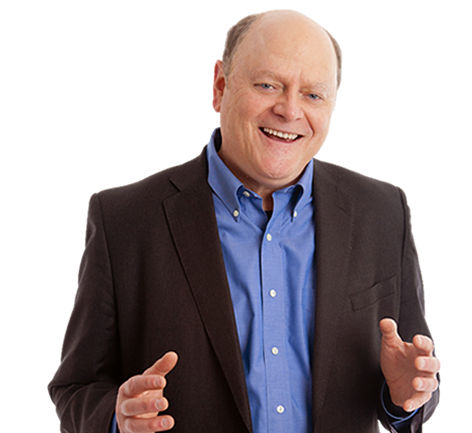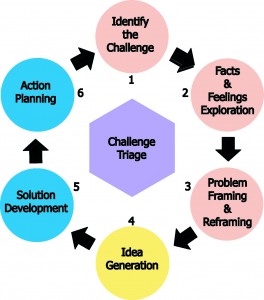CPS really works. Entrepreneur’s and Innovators, learn it and prosper.
I had the opportunity and pleasure of co-teaching a class this week with Silicon Valley wiz Randy Haykin. We did a Team Problem Solving course for the MBA program at Cambridge’s Judge Business School. It was a dynamic week and mostly due to a clever cadre of international students. The course featured “CPS” (aka Osborn-Parnes Creative Problem Solving process) as the primary method/tool. Students processed an entrepreneurial challenge using CPS and presented solutions — business plans — on the final day.
What amazed me most about the course was how well CPS worked even with inexperienced users, with no neutral facilitator, and in a very compressed time frame. The final presentations were not only creative, they were complete, and at times ingenious. One group reinvented the concept of the bookstore. Another group created a crowd-sourced pricing tool for real-estate, and the third team solved a marketing challenge for a new brand of premium wine. The quality of ideas was very high, and even more important, the actions plans were compelling, even inspiring. Now granted, these are talented young people, but even so, in three days they created totally valid business concepts, using a methodology they were still learning.
I wrote a business novel about CPS, Jack’s Notebook, so, it won’t surprise most of you that I believe it’s a valuable process. Having learned it myself nearly 25 years ago I sometimes take the power of it for granted. At times in my life I’ve flogged CPS like salted cashews, but I often feel my song of praise is unheard. This week’s course reassures me that even though CPS was articulated in the 1950’s it remains an amazingly effective, flexible, and intuitive business tool. There are other great methods and tools, but the great thing about CPS is you can include them, or aspects of them, under its forgiving umbrella. Six Sigma, TRIZ, Theory of Constraints, and DeBono’s Six Hats — all can be used with CPS. You can even use improvisation games.
I guess I’m singing that song again.
Here’s the bottom line: CPS should be a must-learn process for any aspiring entrepreneur or innovator. My suggestion: buy Jack’s Notebook and teach yourself.
I’ll send you the book free if you give me .1% of your new venture!




3 responses to “CPS Really Works For Innovation”
This is cool, Gregg!
It was a memorable experience.
[…] return to the basics. The basics of innovation are essentially structured creative problem solving. Revisit CPS. And refocus on PROJECTS. It wouldn’t hurt to read Jack’s Notebook. 11. Cut out the […]